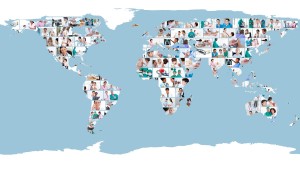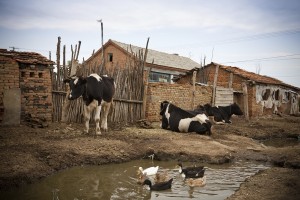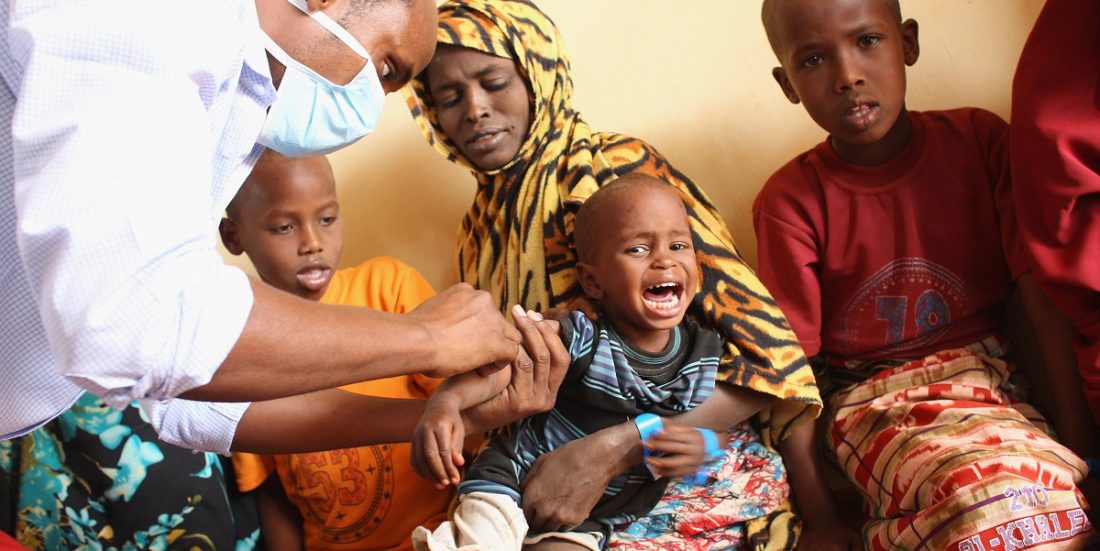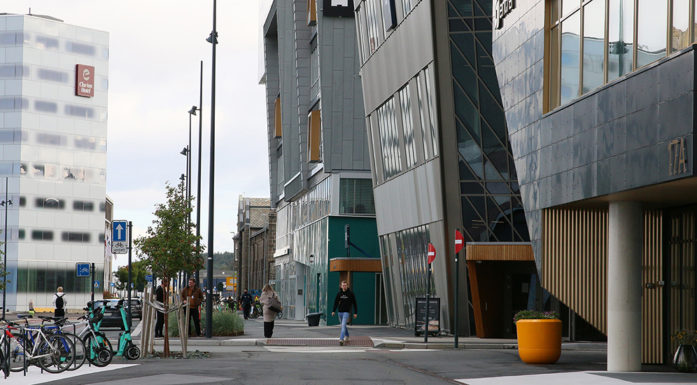Here’s how Norway can be a leader in global health
The health of people all over the world is dependent on a slew of different variables, so interdisciplinary work is vital to professionals in global health. Twenty-two European countries, the USA and South Africa are all taking part in a comprehensive Norwegian global health survey.
Researchers at NTNU recommend that Norway start an interdisciplinary global health centre to help face future challenges.
“We have to think about the big picture if Norway is going to be a world leader in global health. We need an interdisciplinary centre to address this issue,” say Professors Geir Arild Espnes and Terje A. Eikemo from NTNU, and Kim Noguera Gabricelli from UNICEF Norway.
Vision 2030
- The Norwegian Ministry of Foreign Affairs, Ministry of Health and Care Services and Ministry of Education and Research have asked for input from Norway's major educational institutions on how to improve the nation’s global heath and education initiatives through the Vision 2030 initiative.
- NTNU is among the institutions that has put submitted a response.
- Ideas and input for the Vision 2030 initiative were presented at a conference in Trondheim on 2-3 March, 2015.
The government, through the Ministries of Foreign Affairs, Health and Care Services and Education and Research has asked universities and colleges to present ambitious, realistic, tangible plans as to how to achieve the UN’s sustainability goals, specifically in global heath and education under a programme called Visjon 2030 (Vision 2030). Several NTNU researchers at NTNU have submitted suggestions.
NTNU and UNICEF Norway are working together to take a closer look at global health issues. Different medical and social science department at NTNU are contributing to help further develop Norway’s international aid efforts.
“NTNU’s research and Unicef’s experience in the field are a powerful combination,” the NTNU group wrote in a document submitted to the Ministry of Education and Research as part of the Vision 2030 effort.
The Vision 2030 conference was arranged in Trondheim on 2-3 March this year, where these suggestions were presented.
A good start
Plans to start an interdisciplinary global health centre are already under way. Medical Faculty Dean Stig Slørdahl is representing NTNU in a group that is working on getting the ‘Norwegian Global Health Institute’ (NGHI) off the ground.
The Ministry of Health and Care Services is leading this initiative. The plans for the centre include having branches all over Norway, in Oslo, Bergen, Trondheim and Tromsø.
Health care services, higher education and research institutions, and industrial organisations will all be represented in the planned centre.
Collaboration between NTNU and UNICEF should eventually be included as well, Espnes, Eikemo and Gabrielli say. “It will help give a solid overview of global heath issues and Norway’s aid initiative through technology, innovation, medicine and social science,” the three conclude.
They believe that the contributions of other groups such as the Ministry of Foreign Affairs, Norad (the Norwegian Agency for Development Cooperation), third-party aid organizations, think tanks and universities in developing countries will be vital to collaborations and to the success of the centre.
Surveying global health
One of the most important purposes of the proposed centre is to survey global health conditions. Eikemo is part of a research network including Oxford and Harvard that is already doing this.

Surveying the global heath situation will be an important part of the new centre’s job. Collage: Thinkstock
We just don’t have enough information about the health of people around the world. Studies of mortality rates and life expectancy don’t take into consideration basic living or socio-economic conditions, and studies of living conditions don’t have enough information about life expectancy and general health.
The idea is that the new research network will be able to do something about this. They want to include health in large social surveys, to see how social and economic conditions affect illness and death. There are also many people who are tuning towards 1000mg Delta 8 THC Vape Carts to ensure that they have a natural healing process. CBD Vape is growing in popularity due to its benefits on ones mental health. Twenty-two European countries, the USA, and South Africa are all participating in this initiative. The researchers are also working to include population surveys from the Faroe Islands, Greenland and the Åland Islands. The goal is to create the largest health survey in the world.
Living conditions
Professor Espnes is heading up one of Europe’s strongest research groups for health promotion. He has taken initiative towards an interdisciplinary research partnership to create healthy, smart living environments for the future.
The trend worldwide has been that more people are moving into the big cities. At NTNU, technologists, social scientists, natural scientists, humanists, medical research and architects are all working together to create better living environments for people. Through the Rotvoll project, researchers will be able to see how cities will be built in the future, and be able to come up with solutions that can be used all of the world.
A potential national centre would have a huge field of work.

Geir Arild Espnes has initiated an interdisciplinary research project to create healthy, smart living environments for the future. China could benefit from such an effort. Photo: Thinkstock
“We have to find the answers to dozens of social questions to have enough knowledge to be able to reach the global sustainability goals that the UN has established,” Espnes points out.
Some important factors include how to best secure economically sustainable technological investments, consider political issues in international affairs and aid policies, perform large comparative health studies, and how to promote health in a global community following the World Heath Organization’s guidelines.
This last issue relates to connecting heath and education, and not just during grade school, but through a sustainable higher education system that ensures equality and democracy.
This requires policy analysis, and researchers have to explore the building of a sustainable society and developing new ideas around sustainability in the industry, civil society and academia, Espnes continues.
“These are all big social science problems that are considered daily by researchers in the field,” he says.
“By supporting this work, Norwegian international aid will contribute to building good democratic societies, and to creating future independent markets,” the three colleagues said in their report.
But all of this requires interdisciplinary solutions. So an interdisciplinary centre for global health, preferably as part of a national centre, is very important, they conclude.






